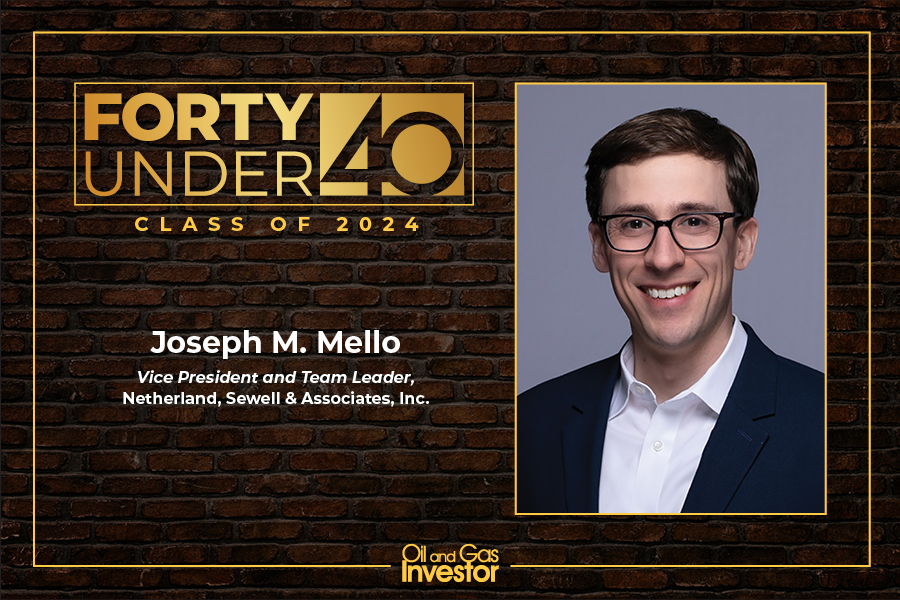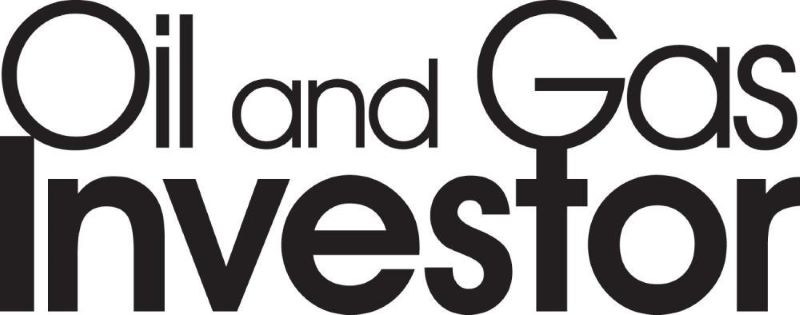Joe Mello

Presented by:

Early in his career as a reservoir engineer for Exxon Mobil, Joe Mello was assigned to work offshore California to identify optimizations that could enhance the facility’s bottom line. “I gained a huge appreciation for all the different pieces that have to fall in place for a successful offshore operation, all the knobs that you can turn to improve an asset’s profitability, and the importance of viewing assets with a mindset that integrates surface and subsurface disciplines,” he says. “That experience really opened my eyes to the huge potential that can remain overlooked at oil and gas assets, hiding in plain sight or inhibited by organizational inertia. I learned to never take a lack of historical action as evidence that something isn’t a potentially valuable idea worth investigating—that’s something I still apply when working on oil and gas A&D projects today.”
What keeps you motivated and passionate about working in the oil and gas industry?
Complex technical challenges are abundant. There are endless permutations of reservoirs to evaluate—for hydrocarbon production and carbon sequestration—so there’s always something new to tackle. That variety keeps me engaged and excited to come to work every day! My CCS work in particular is also exposing me to new segments of the energy industry that have not had much need for oil and gas evaluation services in the past—ethanol producers, capture equipment manufacturers, “green” investment funds. I’m energized by meeting new people and learning about the needs and concerns of other areas of the broader energy industry.
How have you exercised leadership to help shape your department?
By leading and growing NSAI’s CCS project evaluation team, I have found opportunities to collaborate with my colleagues on CCS projects to further enhance their expertise, and I have positioned NSAI to serve the entire carbon value chain from production to sequestration over the long term. The typical services we provide around reserves evaluations extend organically into CCS evaluations, so I have needed to focus on sharing the workflows that I use and the unique considerations that are more important in CCS than the upstream side of the industry, as opposed to needing to train on the core technical skills that are needed, such as the use of dynamic simulations.
Which transformations do you think the industry must undertake for it to thrive in the future?
Right or wrong, policymakers around the developed world seem to be heading towards incentivizing decarbonization. But hydrocarbons are just so useful in terms of energy density, abundance, cost and utility for things like plastics and chemicals that I don’t think demand for them will diminish quickly. In order to thrive in the future, I think the oil and gas industry needs to embrace the CCS sector as an integral and necessary part of the hydrocarbon value chain going forward and strive to develop projects over the next decade that demonstrate the safety/security of storage and the scalability of CCS to the public. The oil and gas industry has the people with the technical expertise, the infrastructure, and the safety culture to make CCS work at scale, so it makes sense that we as an industry should take a leading role in developing these projects and ensuring we maintain a societal license to operate as long as there is demand for hydrocarbons.
Take a look at the rest of the Forty Under 40 2024 winners.

